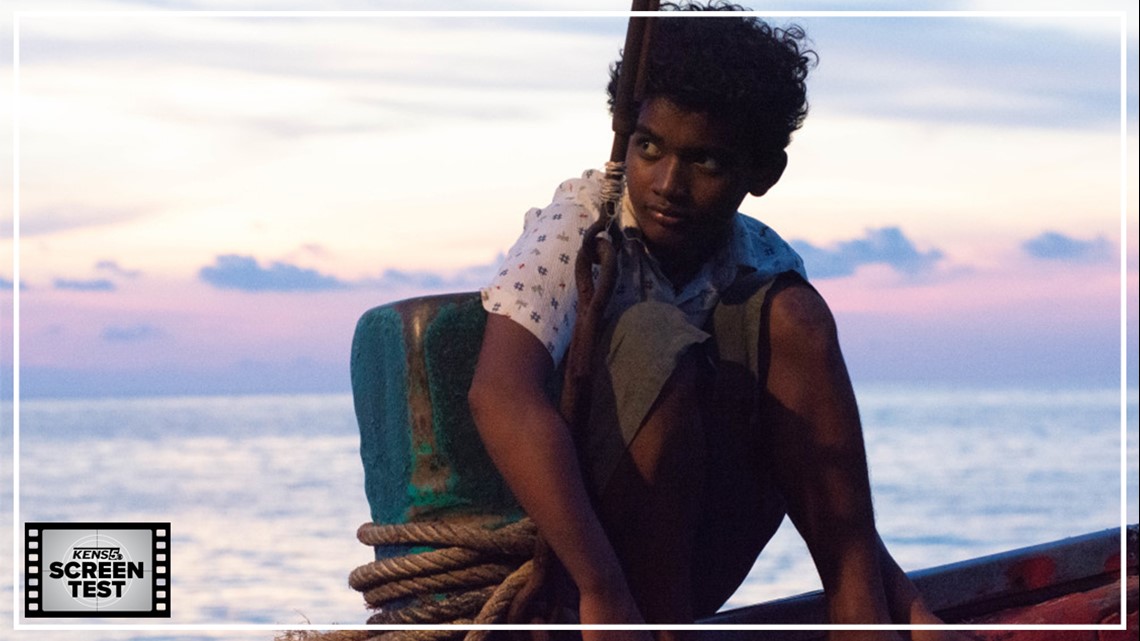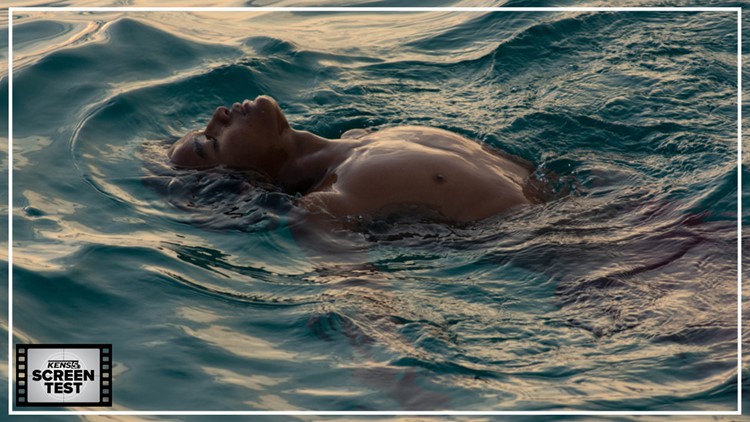It’s difficult to pinpoint when determination devolves into desperation for the exhausted child laborer in “Buoyancy,” a new film spotlighting the systemic horrors of an unchecked fishing industry that puts product in our markets and, judging from what we see in Aussie director Rodd Rathjen’s feature debut, also dumps dead bodies in the sea. Simplistic in narrative but heart-hardening in the bleakness of its images, “Buoyancy” informs by way of cruel implication—of threats delivered in glares and the slow degradation of the soul on the open sea. Although, after watching the film, I’m left skeptical that its one-note approach and unresolved drama doesn’t ultimately sideline the real-life corruption that reportedly inspired it.
The young boy is credited as Chakra, although if we ever hear that name, I can’t recall it. The movie is of minimalistic design; characters aren’t fully drawn out so much as they are referenced, and the only major hint we’re given in regards to the financial knife’s edge that Chakra’s family is dancing on comes when he asks an acquaintance about working at a Thai factory. He takes little time to consider his next course of action. That very night, just when we’ve become used to the beautifully shot palm trees of Cambodia, he sneaks off, motivated presumably by the grim prospects of his family’s immediate future. Rathjen’s clearest message in “Buoyancy” may very well be how, in some parts of the world, the next option to escape lower-class oblivion is quite simply the best option.
For Chakra, the next option immediately becomes a dubious undertaking. In a largely wordless sequence that may remind U.S. audiences about mainstream depictions of coyotes ferrying immigrants illegally across the border, the boy joins several unnamed (and older) counterparts who pack the bed of a pickup truck like sardines in a can under the dark of night, risking personal safety for the dream of economic stability. Things start to go terribly awry when they arrive at a port and spot a fishing trawler. Weren’t we told they would be working in a factory? One of the laborers, afraid of the water, pipes up with his opposition, and he’s quickly met with a taste of the cruelty that will come to imprison Chakra and his fellow companions on the boat, on the sea, on the fringes of global scrutiny. And perhaps beyond that scrutiny as well, where one’s best chance for survival is to do as he’s told without complaining about the scarce sleeping hours and food.
“Buoyancy,” which premiered at the Berlin International Film Festival in 2019, is the result of Rathjen apparently having been so dismayed after reading an article about the slavery that powers an unregulated Thai fishing industry that he felt compelled to bring the story to light. In certain regard, he does what he set out to do: This is a despairing portrait of dehumanized manual workers whose quest for money becomes a waterlogged mission of survival as they haul in product that will become “dog food and cat food.” It’s perhaps expected that not everyone endures, though it seems like the vessel’s de-facto warden is looking for every opportunity to put his victims out of their misery. Is his bloodlust stronger than profit? As the ship sails further on and on, that increasingly seems to be the case.
It’s also the reason why the movie becomes a bit of a dilemma for its audience, and why Rathjen’s motivations get twisty. If the intent is to provide a dramatized look at an ongoing issue, it can be difficult to see the heart of capitalistic darkness through its fangs. Rathjen clearly has a talent for capturing menace through isolation – and Lawrence English’s foreboding drone of a score will send your heart jumping into your throat – but in centralizing Chakra as a protagonist and the captain, Rom Ran (Thanawut Ketsaro), as a natural foe, he sets up a psychological mind game that contradicts the seeming universality of his story (one reportedly built on the accounts of survivors). We get used to the rumble of the ship’s motor, the barking of orders, the tip-toeing around danger...but very rarely can we confidently say we’re privy to inner dialogue.


The result: We find ourselves invested more in what is going on under the pits of Chakra’s eyes than in the misfortunes that brought him to this point. And “Buoyancy” demands our investment despite not being able to fully submerge ourselves in the dramatic depth of Chakra leaving his family; we simply don’t have enough time with them early on for the life that he left behind to become a source of emotional intrigue. It all feels a bit too one-dimensional, and so it can be hard to figure out where docudramatization ends and artistic liberty begins. It’s even harder to decipher the movie’s confusing final moments.
Still, “Buoyancy” finds opportunity to magnify the exhaustion of these laborers, and the excruciating conditions under which they’re expected to be productive. The cast of non-professional actors contributes to the authenticity, even if inexperience occasionally pokes through as caricature. There’s room to interrogate what is a white-directed movie depicting the torment of East Asian bodies (sometimes in particularly gruesome fashion), but if there’s one shot Rathjen would point to as summation of his interests, I would imagine it to be the camera’s hypnotically slow receding from the trawler to show just how alone it is, and just how alone its inhabitants are in their struggle. Dare to take your eyes away from that ship in the distance where humanity is being casually stripped away, he seems to be suggesting. Not that the film gives us much of a choice elsewhere, where the bluntness of its message is delivered with perhaps a bit too simplistic of a moral swing.
"Buoyancy" is not rated. It's available Friday via virtual cinema options from Kino Marquee.
Starring: Sarm Heng, Thanawut Ketsaro, Mony Ros
Directed by Rodd Rathjen
2020
OTHER SCREEN TEST REVIEWS:
- ‘I’m Thinking of Ending Things’ Review: Charlie Kaufman resumes his search for meaning in haunting Netflix head trip
- ‘Tenet’ Review: Christopher Nolan’s time-bending exercise was made for an audience of one
- ‘Epicentro’ Review: A monumental and monumentally complex observation of Cuba at a crossroads
- ‘Centigrade’ Review: Wintry thriller feels as weary as its trapped victims
- ‘Unhinged’ Review: Russell Crowe is on a rampage in brutal, thematically stagnant thriller
- ‘Tesla’ Review: Overlooked innovator gets the spotlight in alluringly unconventional biopic
- ‘Sputnik’ Review: Spunky and smart creature feature makes for a tantalizing feature debut
- ‘Boys State’ Review: Political maneuvering knows no (age) limits in enthralling new documentary



